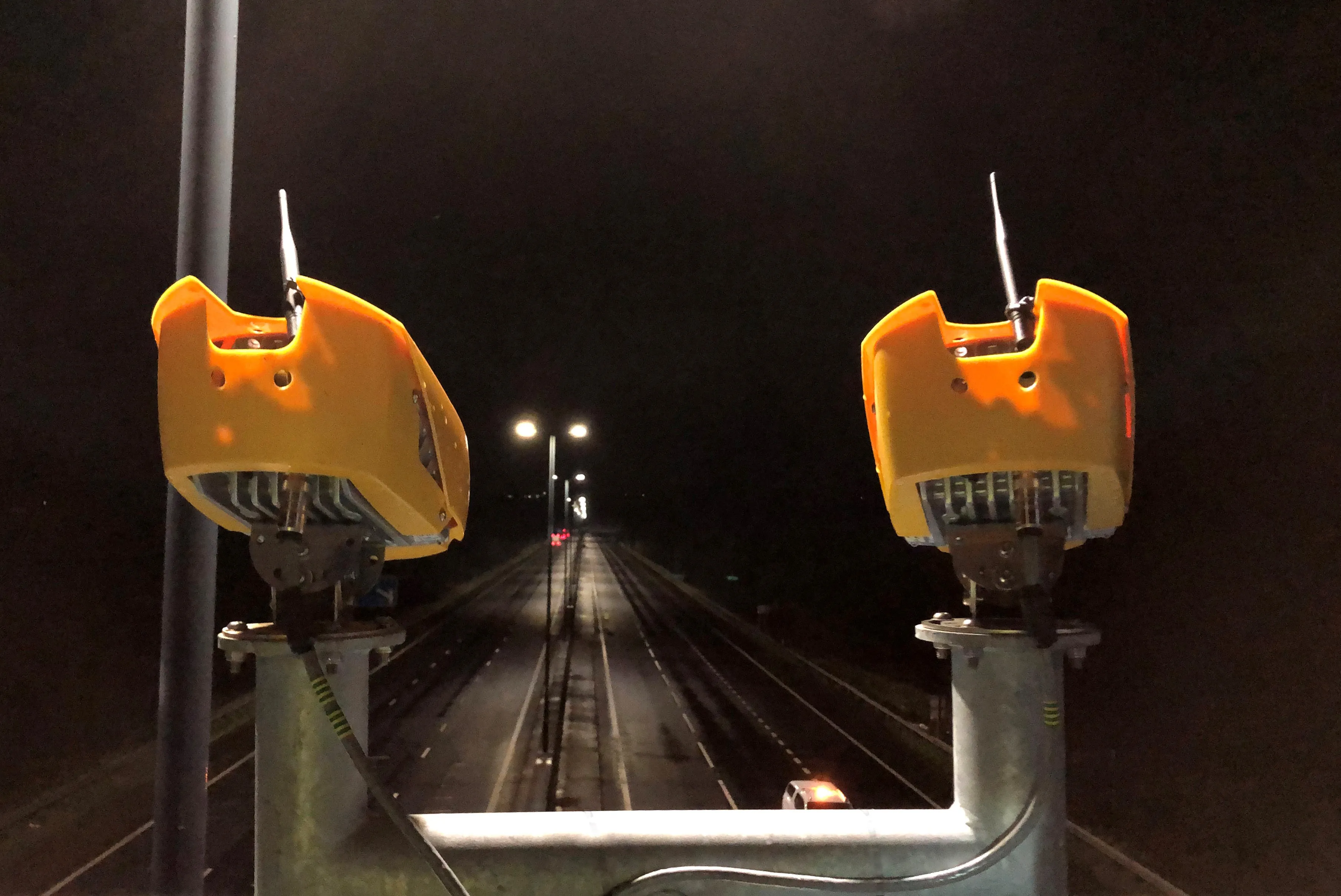The legislation to allow heavy goods vehicles (HGVs) to travel at 50mph on sections of single carriageway on the A9 between Perth and Inverness in Scotland has been signed and will come into force at the same time as the average speed camera system on the route becomes operational – 28 October.
The pilot, which was approved by the Scottish Parliament earlier this year, will help to improve journey times and also driver behaviour, by reducing frustration, queue lengths and journey times for HGVs.
Trans
October 22, 2014
Read time: 3 mins
The legislation to allow heavy goods vehicles (HGVs) to travel at 50mph on sections of single carriageway on the A9 between Perth and Inverness in Scotland has been signed and will come into force at the same time as the average speed camera system on the route becomes operational – 28 October.
The pilot, which was approved by the Scottish Parliament earlier this year, will help to improve journey times and also driver behaviour, by reducing frustration, queue lengths and journey times for HGVs.
Transport minister Keith Brown said: “This pilot is part of a package of measures that is being taken forward to improve the operational performance of the A9 and to enhance safety.
“We want to see reliable and competitive journey times for all road users, including the freight haulage industry. Simply raising the speed limits for HGVs could have a detrimental effect, but the use of average speed cameras as part of the pilot helps support the wider changes we are making to promote an overall improvement in driving conditions.
“The 50 mph HGV pilot will bring operational benefits and help reduce frustration on Scotland’s longest road.”
Richard Burnett, chief executive of the6985 Road Haulage Association said: “The key issue here is one of improving journey time reliability for hauliers and other road users alike. Many A9 incidents, together with the resultant delays, are caused by no more than sheer motorist frustration when getting stuck behind a slow moving heavy goods vehicle. It makes sense that a 10mph reduction in the speed differential between cars and HGV’s will mean a corresponding reduction in frustration and accidents.
“In addition to improved efficiency, as most modern trucks do not get into top gear at 40mph, there are potential safety benefits. This really is a win-win situation for all users of one Scotland’s major arterial routes.”
Malcolm Bingham, the6983 Freight Transport Association’s head of Road Network Management Policy, said: “FTA is in full support of the 50mph speed limit trial for HGVs on the A9 and we look forward to its introduction on 28 October. We welcome the opportunity for such a trial as we believe the current differential in speed limits between HGVs and other vehicles increases the road safety risk."
The pilot, which was approved by the Scottish Parliament earlier this year, will help to improve journey times and also driver behaviour, by reducing frustration, queue lengths and journey times for HGVs.
Transport minister Keith Brown said: “This pilot is part of a package of measures that is being taken forward to improve the operational performance of the A9 and to enhance safety.
“We want to see reliable and competitive journey times for all road users, including the freight haulage industry. Simply raising the speed limits for HGVs could have a detrimental effect, but the use of average speed cameras as part of the pilot helps support the wider changes we are making to promote an overall improvement in driving conditions.
“The 50 mph HGV pilot will bring operational benefits and help reduce frustration on Scotland’s longest road.”
Richard Burnett, chief executive of the
“In addition to improved efficiency, as most modern trucks do not get into top gear at 40mph, there are potential safety benefits. This really is a win-win situation for all users of one Scotland’s major arterial routes.”
Malcolm Bingham, the









